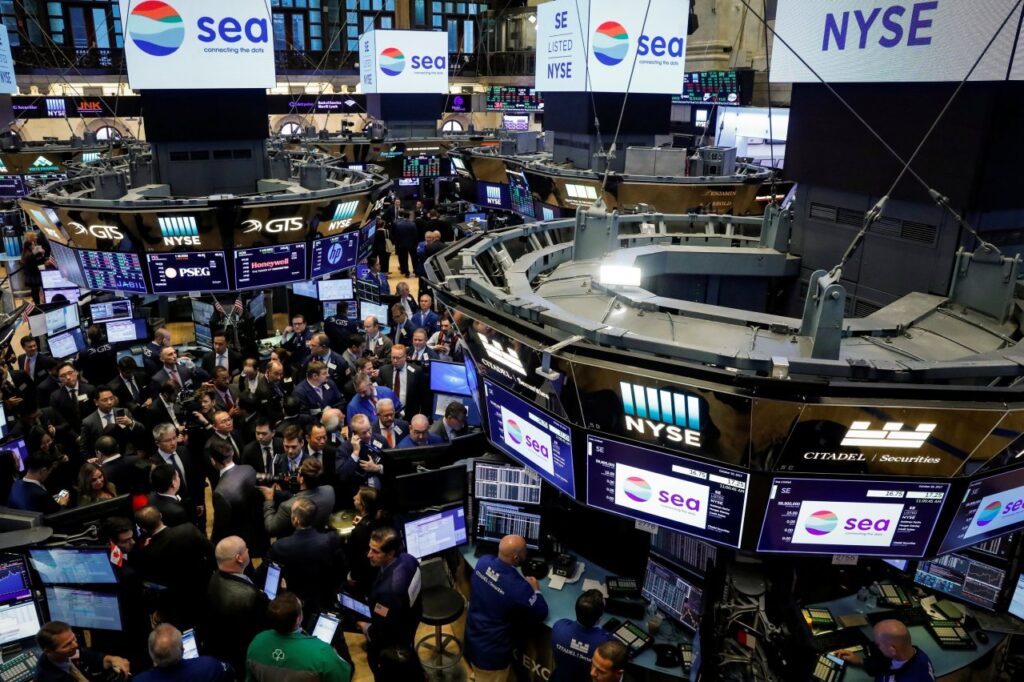
NEW YORK.- Wall Street plunged at the opening on Monday, with falls of more than 1,000 points in two of its main indicators, the Dow Jones Industrial Average and the Nasdaq, due to fears of a recession in the United States that appear to have spread today to other international markets.
Five minutes after the bell, the Dow Jones increased its losses to 1,152 points (-2.90%) and the Nasdaq moderated them to 810 points (-4.83%), while the S&P 500, which represents the US market more broadly, cut 195 points (-3.66%).
According to analysts, volatility is now at levels not seen since the stock market crashes of March 2020, linked to the declaration of the Covid-19 pandemic, due to fear that the US Federal Reserve (Fed) will dictate the expected rate cut too late.
The Vix index, known as the "fear gauge" and which measures volatility, soared by 100%.
Among the sectors that suffered the most was, by far, the technology sector (-5%), with a notable drop by Nvidia (-10%), a leading chip manufacturer in artificial intelligence (AI) that has had a buoyant trajectory in recent months.
After last week’s global falls, today the Nikkei in Japan fell by 12.40%, its second largest fall in history, following a recent rate hike in Japan, while in Europe, the major stock markets accumulated losses of around 2% shortly before closing.
The Fed kept the high interest rate environment unchanged last Wednesday and suggested that a rate cut would soon come, but the weak data on the labor market and industrial activity released on Thursday and Friday caused nervousness among investors.
The July US employment report indicated that job creation slowed to 114,000 positions, less than estimated, and the unemployment rate rose to 4.25%, a figure that is close to a recession indicator known as the "Sahm rule", which compares the average unemployment rate of the last three months with that of the last twelve.
Market analyst Manuel Pinto said that the data made investors fear that the Fed "could have waited too long to cut rates and that the economy could face a 'hard landing', which involves a slowdown or recession after a period of rapid growth."
Tiffany Wilding, an analyst at Pimco, said that the economy "has not yet collapsed" and advocated continuing "on the lookout for clues": "The next employment report and the recovery from the weakness of July will be key to setting the tone for the Fed’s September meeting," she said in a note.
Elsewhere in asset markets, Texas oil opened trading around $72 a barrel, erasing virtually all of the year’s gains as concerns about demand in China added to the potential U.S. recession.
Bitcoin, the leading cryptocurrency, fell 11 percent to around $51,750.
As for safe-haven assets, the yield on the 10-year U.S. Treasury note fell to 3.64 percent on demand, but gold, which is also often included in this category, fell to $2,430 an ounce.